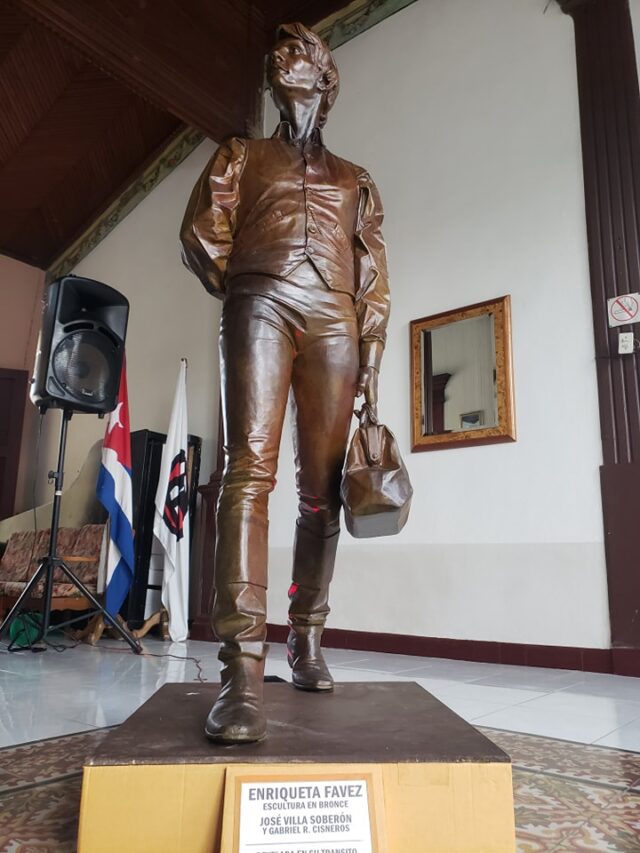 A bronze sculpture of Swiss Enriqueta Favez, the first woman to practice medicine in America with a false male identity and clothing, was on exhibition to the public in the theater room of the Cecilio Gómez Lambert Municipal House of Culture, in the city of Baracoa, the first Cuban Villa.
A bronze sculpture of Swiss Enriqueta Favez, the first woman to practice medicine in America with a false male identity and clothing, was on exhibition to the public in the theater room of the Cecilio Gómez Lambert Municipal House of Culture, in the city of Baracoa, the first Cuban Villa.
The event was attended by members of Baracoa’s cultural associations, as well as renowned artists and writers, including the prominent poet, cultural promoter and essayist Carmen Serrano Coello, who donated the first issue of the Maguana Magazine to the local Raúl Gómez García Library, for use as mandatory reference material for creators in the municipality.
The piece by Enriqueta Favez, a work by artists José Villa Soberón, winner of the 2008 Plastic Arts National Prize, and the young sculptor from Las Tunas, Gabriel Raúl Cisneros, is a replica of the image inaugurated in February 2023 in Havana’s Alameda de Paula, on the occasion of the 204th anniversary of her arrival in Cuba.
The sculpture was unveiled on June 8 that year in the lobby of the provincial headquarters of the Cuban Association of Writers and Artists (UNEAC) in Guantánamo and then temporarily located on the Boulevard of the sixth most populated city in the Cuban archipelago.
Investigations into Enriqueta Favez reveal that she studied medicine at the Sorbonne University in Paris wearing the dress and identity of an officer of the regiment to which her late husband belonged and during the Napoleonic Wars she worked as a surgeon until her capture in Spain by British troops.
Upon her release she traveled to Cuba to begin a new life under the name of Enrique Faber and settled in Baracoa in March 1819, where she practiced medicine.
There she married Juana de León, a woman from Baracoa who was aware of her husband’s true biological sex, until the secret was discovered and she ended up condemned in one of the most famous trials of the time, then sent to prison in the San Francisco de Paula Women’s Hospital in Havana, and expelled to New Orleans, where she assumed the name of Sister Magdalena to provide medical assistance to the poor.
Her story motivated the production of the Cuban fiction feature film Insumisas, by the multi-award-winning director Fernando Pérez.